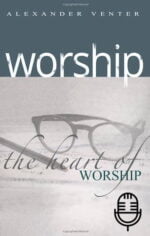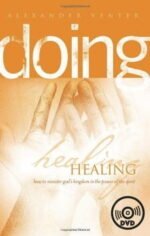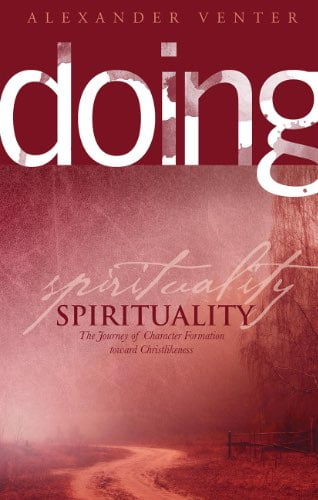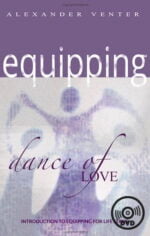This third and fourth teaching in ‘Living The Life God Intended’ introduces Jesus’ Sermon on the Mount and his ‘blessed be’s”. To listen to the audios click on these links – I taught the beatitudes in two talks:
http://followingjesus.org.za/sermons/20170730-living-the-life-god-intended/
http://followingjesus.org.za/sermons/living-the-life-god-intended-talk-4/
Intro to the “Blessed Be’s…”
The “Blessed be’s” is Jesus’ intro to human flourishing – living life as God intended. They are typical Jewish wisdom sayings that invert what the world values (e.g. Psalm 1:1, 37:11, Prov 1:20-33). How do we understand and interpret them? Are they character virtues that we must aspire to in order to flourish and live the good life? No! That would be a ‘works gospel’; i.e. we then enter the Kingdom of Heaven (KOH) by human merit of certain virtues. The eight beatitudes do not prescribe who we have to be or what we must do to enter and live in the KOH – to enter the KOH is all grace-gift! They describe the kinds of people – yet not all – who flock after Jesus (Matt 4:23-25 cf. Matt 5:1-8), who enter the KOH by repentance and faith (Matt 4:17), not by merit of character virtues. While Moses’ Ten Commandments prescribe ‘holy living’, Jesus’ eight Beatitudes describe ‘people conditions’ that enter the KOH and live the repentant reconditioned life, God’s eternal kind of life here and now.
We are blessed not because we are poor in spirit, or because we mourn, or are humble, or hungry for justice, or merciful, etc, but because we receive the KOH. The blessing is not in the condition, but in the Kingdom, which reconditions us into living the life of the new covenant. This is made clear by the ‘enclosure’ (technically called an inclusio) of Matt 5:3 and Matt 5:10; the opening and closing repetition “for theirs is the KOH” means that all those between these two equally receive the KOH, but as either comfort, justice, inheritance, mercy, seeing God, being called the children of God, depending on their ‘condition’ or need.
In Hebrew, to be “blessed” is to have the favor of God’s promised KOH. Greek makarios (Matt 5:3, “blessed”) literally means ‘so happy… to be envied’. It described the life of the gods. It was the name of a totally self-resourcing Greek island that flowed with water and food, so that the other islands envied it. The common view today of the blessed life is: “blessed are the self-sufficient, the rich, those who laugh, who party, the educated, the powerful, the winners.” But not so from God’s perspective! He sees differently. He inverts what the world values.
Jesus’ method of teaching was to subvert the dominant consciousness by exposing the wrong assumptions that the coming KOH challenges. So we must “repent”, change our thinking, see from God’s viewpoint! Paul Simon captured this kind of inversion in his song, “Blessed are the sat on, spat on, ratted on!” The KOH comes to those who are lost, despised, desperate, marginalized, persecuted… THEY are blessed, not due to their condition, but because they receive the KOH and are transformed by it. We must open your eyes to see what God is doing, what the good life of the KOH is, and who is entering and flourishing in it. Thus Jesus looks out over the crowd and his disciples sitting near him (Matt 5:1), and says…
The Beatitudes
So happy and to be envied are the poor in spirit. They are those who are aware of their spiritual bankruptcy, their need of God, their lost state. This includes the materially poor and needy (Lk 6:20). They are blessed with the coming KOH because they receive God’s favor by entering the good life. They are reconditioned with God’s forgiveness and rich resources that are available to all people in God’s Kingdom, not only at the end of this age, but here and now.
So happy and to be envied are those who mourn. They are those who weep (Lk 6:21) due to personal sin and pain, grief of the loss of loved ones, who suffer life’s hurts, who mourn for society’s corruption and evil (Ps 119:136). They are blessed because the KOH comes upon them and are favored with the promised Messianic comfort of Isaiah 40:1-2. The promised Holy Spirit comes on them, forgives them, restores them, holds them, indwells and guides them.
So happy and to be envied are the meek (quoting Ps 37:9,11 cf. Ps 2:8). They are those who are seen as the weak because they refuse to take things into their own hands to bring about the KOH – even by force, if necessary, like the Zealots and other activists. The meek in Israel were the restrained, the godly, who humbly waited on God for his intervention to give them Israel’s inheritance, which was not just a slice of real estate in the Middle East, but the whole earth! They are blessed in Jesus bringing the KOH because it already gives them, in principle, their inheritance. They will receive it’s fullness at the end of the age when the KOH comes in the promised resurrection of those who will rule and reign over the whole earth.
So happy and to be envied are those who hunger and thirst for righteousness; those who are desperate for God’s justice, truth, covenant faithfulness, right-way-of-living… in the face of injustice, oppression and literal hunger. The Hebrew root for righteousness is justice; i.e. covenant faithfulness that gives right-standing-with-God and justice in relationships and society. They are blessed because the coming of the KOH in Jesus makes the future justice of God’s Day of Judgement available to all who cry out for it right now. God’s favor fills them with what they need, with what was promised (see Isaiah 25:6-7).
So happy and to be envied are the merciful; those who are compassionate and seek to help others in need; those who carry the hope of God’s mercy on the Day of Judgement (Micah 7:18-19). They are blessed not because they are merciful, but because the KOH has come in Jesus and they receive future mercy now, as in the forgiveness of sin, healing of sickness, deliverance from demons, pain, poverty, etc.
So happy and to be envied are the pure in heart; those who were regarded as ‘clean’ and ‘undefiled’ in Israel; i.e. who recognized God alone was their help and reward (see Ps 73:1-28). They are blessed because they will not only see God on Judgement Day (as some did in the Exodus, Ex 24:9-11), but they already see God in Jesus’ KOH mission & ministry. Entering the Kingdom they see God, and what he is doing, in all things.
So happy and to be envied are the peacemakers; those who seek the way of peace, and not violence, to bring about the KOH. As a Jewish rabbi Jesus would be speaking of ‘shalom-makers’, as in seeking God’s peace (shalom is reconciliation, order, harmony, unity, prosperity, wholeness) based on right relationship with God, each other, and creation. They are blessed because, in receiving the Kingdom as Christ’s follower, the end-time declaration of “son (child) of God” is theirs here and now. And THAT reconditions them to live out the nature of their Father, living the life God intended.
So happy and to be envied are those who are persecuted for righteousness (Matt 5:10-12). They are those who stand for truth, justice, integrity; the ‘whistle blowers’ and prophetic challengers of the unjust powers and corrupt society. They are blessed not because they do this, but because “theirs is the KOH”; i.e. the KOH is their reward not only at the end of the age, but here and now in the coming of King Jesus.
Jesus then personalizes it: “Blessed are you if you’re persecuted because of (following) me, because not only are you fulfilling the prophetic tradition – suffering for righteousness – but great is your reward in heaven.” After 400 years of ‘silence’ from heaven (after Malachi there were no more prophets in Israel), God spoke through John the baptizer – whom Jesus called the greatest of the prophets (Matt 11:11). And then God spoke fully through King Jesus… and his followers. Jesus saw his followers as the prophetic community of the KOH, God’s witness to both earthly and spiritual powers, and to society, of what the Rule and Reign of God looks like in this age.





